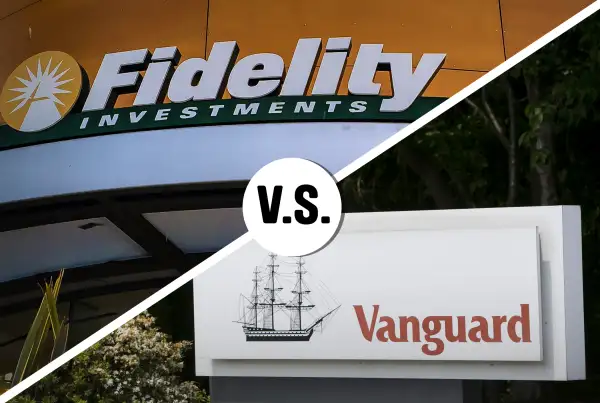Fidelity Takes on Vanguard in the Fund Fee Wars, and Investors Win
Money is not a client of any investment adviser featured on this page. The information provided on this page is for educational purposes only and is not intended as investment advice. Money does not offer advisory services.

There's another entry in the race-to-the bottom to lower investing fees. This time, it's Fidelity making a move.
According to a release sent out on Tuesday, financial services company Fidelity announced that starting on July 1, it will "reduce total expenses on 27 of its equity and bond index mutual funds and exchange traded funds," a move that will position the investing company directly against competitors like Vanguard, which has famously low fees for investors.
Average expenses for Fidelity funds will drop to 0.102%, down from 0.116%, following the lead of other fund managers like Charles Schwab and Goldman Sachs, who lowered fees to 0.03% and 0.09%. That means for every $100 you've invested in one of these funds, you're paying less than a dollar in fees.
With this change, the expense ratio for Fidelity 500 Index will now be even cheaper than rival Vanguard 500 Index , which charges 0.16%. And it will match Schwab S&P 500 Index , which also carries an 0.09% fee.
This is just the latest in a continuing battle among fund companies to entice investors with lower and lower fees. Judging by cash flows, Vanguard, the low-fee pioneer, has been the clear winner so far. Even if its investor retail funds aren't the absolute lowest cost options in some categories, Vanguard's fund shares for higher net worth investors, as well as its exchange-traded funds (ETFs), are still among the cheapest around.
For the everyday investor and those saving for retirement, the fund fee wars have been a huge benefit. Fund fees take a big bite out of your investing profits. And in today's low-return environment, minimizing fees is more crucial than ever.
Calculator: How do taxes and inflation impact my investment return?
That's why it makes sense to focus on low-fee funds, even if you prefer active management to passive investing. Low-cost actively managed funds typically beat their higher-cost peers, according to a Morningstar study. In our Money 50 ranking of the best mutual funds and ETFs, we include only inexpensive active funds, along with index funds and ETFs. (For the full run-down on mutual fund fees, read this cheat sheet.)
Tuesday's announcement comes after another investor-friendly Fidelity move in May, which made the company's index funds more accessible by opening them up to other brokerages.
Overall, this is welcome news for average investors, who will find it easier than ever to opt for cheaper funds. In today's shaky markets, you need every advantage you can get.